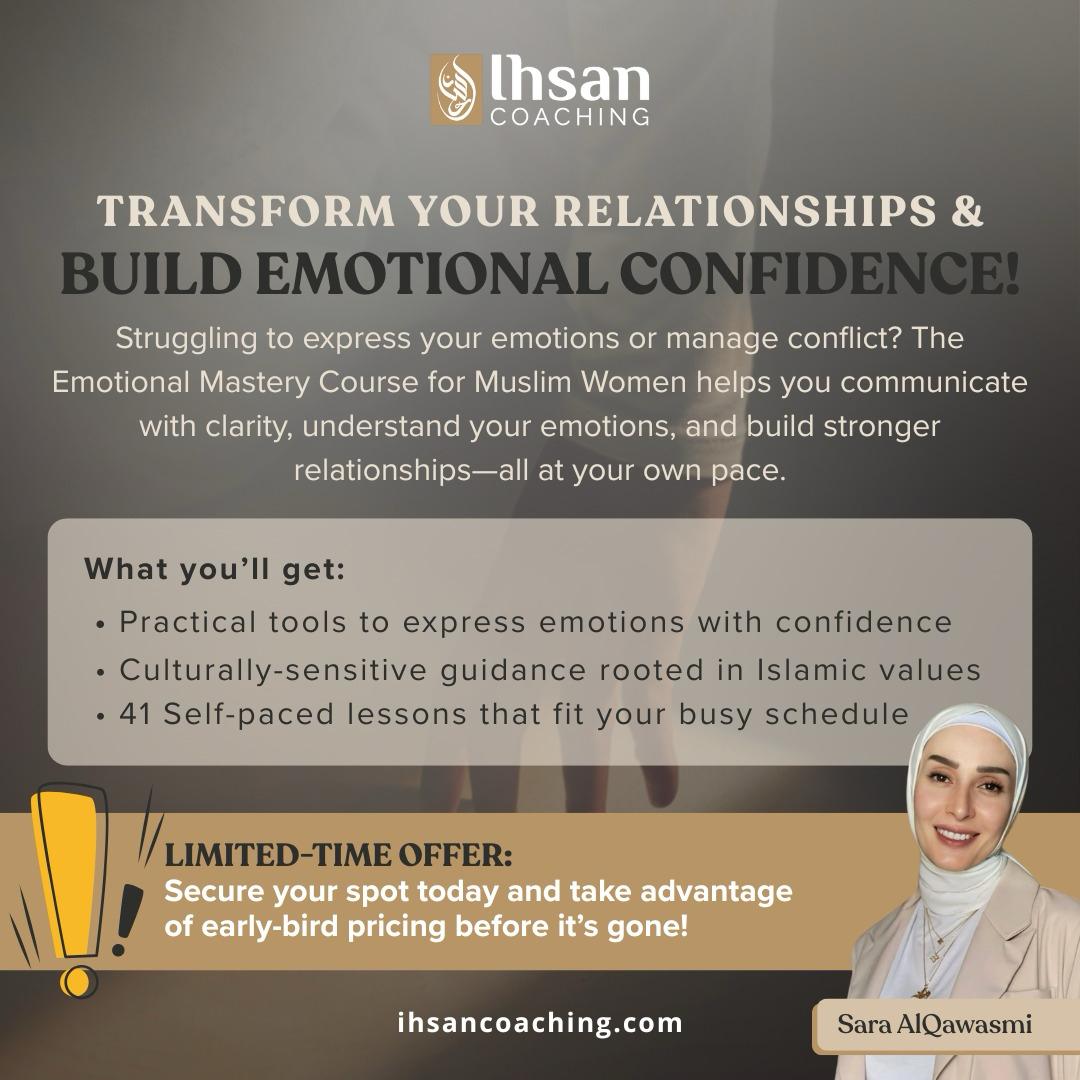Lessons from Quran
Life is full of challenges that often require guidance and wisdom to navigate. The Quran offers valuable insights into personal growth, resilience, and self-care that can help transform an individual’s life. Let’s navigate through some insightful verses from the Quran, each offering practical advice and spiritual wisdom which will enhance your daily life and personal growth.
Patience and Perseverance
The Reward of Patience
إِنَّ اللَّهَ مَعَ الصَّابِرِينَ
“Indeed, Allah is with those who are patient.” (Quran 2:153)
This verse reassures believers that patience is not only a virtue, but also a means of feeling the presence and support of Allah. The lesson here is that patience connects us directly with divine assistance and favor.Perseverance Through Trials
وَلَنَبْلُوَنَّكُم بِشَيْءٍۢ مِّنَ ٱلْخَوْفِ وَٱلْجُوعِ وَنَقْصٍۢ مِّنَ ٱلْأَمْوَٰلِ وَٱلْأَنفُسِ وَٱلثَّمَرَٰتِ ۗ وَبَشِّرِ ٱلصَّـٰبِرِينَ
“And We will surely test you with something of fear and hunger and a loss of wealth and lives and fruits, but give good tidings to the patient.” (Quran 2:155)
Life’s trials are inevitable, but the key to overcoming them is patience. It encourages seeing these trials as tests of faith, where patience can yield profound spiritual rewards.Patience in Adversity
فَٱصْبِرْۖ إِنَّ وَعْدَ ٱللَّهِ حَقٌّۭ
“So be patient. Indeed, the promise of Allah is truth.” (Quran 30:60)
Adversity tests our faith, and this verse calls for steadfastness in the face of such tests. This lesson highlights that true patience lies in trusting Allah’s timing and promises, reinforcing a believer’s hope and resolve.Enduring with Faith
وَٱسْتَعِينُوا۟ بِٱلصَّبْرِ وَٱلصَّلَوٰةِ
“Seek help through patience and prayer.” (Quran 2:45)
This verse suggests that patience should be accompanied by prayer, offering a practical method to cultivate resilience. It teaches that patience, when coupled with prayer, forms a solid foundation for enduring life’s challenges.The Example of Prophets
فَٱصْبِرْ كَمَا صَبَرَ أُو۟لُوا۟ ٱلْعَزْمِ مِنَ ٱلرُّسُلِ
“And be patient, [O Muhammad], as were those of determination among the messengers.” (Quran 46:35)
Reflecting on the lives of the Prophets, this lesson underlines that even the most steadfast Messengers of Allah practiced patience. It serves as an inspiration to emulate their perseverance in the face of trials.

Compassion and Kindness
Embodying Compassion
وَٱخْفِضْ لَهُمَا جَنَاحَ ٱلذُّلِّ مِنَ ٱلرَّحْمَةِ وَقُل رَّبِّ ٱرْحَمْهُمَا كَمَا رَبَّيَانِى صَغِيرًۭا
“And lower to them the wing of humility out of compassion and say, ‘My Lord, have mercy upon them as they brought me up [when I was] small.'” (Quran 17:24)
This verse teaches the importance of showing compassion and humility to one’s parents, reflecting a broader principle of treating all people with kindness and respect. It reminds believers to reciprocate the care they have received with gentle and considerate behavior.Kindness to Neighbors
“Worship Allah and associate nothing with Him, and to parents do good, and to relatives, orphans, the needy, the near neighbor, the neighbor farther away…” (Quran 4:36)
This lesson emphasizes the importance of kindness to everyone, extending from immediate family to distant neighbors, illustrating the comprehensive nature of compassion in Islam.Mercy Over Anger
خُذِ الْعَفْوَ وَأْمُرْ بِالْعُرْفِ وَأَعْرِضْ عَنِ الْجَاهِلِينَ
“Show forgiveness, enjoin what is good, and turn away from the ignorant.” (Quran 7:199)
Here, The Quran advises believers to favor mercy and forgiveness over anger and harshness. The lesson is about choosing peace and understanding, especially in the face of ignorance or provocation.The Reward of Kindness
هَلْ جَزَاءُ الْإِحْسَانِ إِلَّا الْإِحْسَانُ
“Is there any reward for good other than good?” (Quran 55:60)
This verse underscores the principle of reciprocity in acts of kindness. It assures that acts of goodness will be rewarded, encouraging believers to persist in their compassionate behavior.Universal Benevolence
وَأَنفِقُوا فِي سَبِيلِ اللَّهِ وَلَا تُلْقُوا بِأَيْدِيكُمْ إِلَى التَّهْلُكَةِ ۛ وَأَحْسِنُوا ۛ إِنَّ اللَّهَ يُحِبُّ الْمُحْسِنِينَ
“And do good; indeed, Allah loves the doers of good.” (Quran 2:195)
Undoubtedly, kindness should be universal as it promotes a proactive approach to benevolence, advocating for consistent and widespread acts of kindness.
Wisdom and Knowledge
The Call for Knowledge
اقْرَأْ بِاسْمِ رَبِّكَ الَّذِي خَلَق
“Read in the name of your Lord who created.” (Quran 96:1)
This verse marks the beginning of the revelation to the Prophet Muhammad and underscores the importance of reading and learning. It teaches that the quest for knowledge is fundamental to understanding one’s faith and the world.Wisdom as a Gift
يُؤْتِي الْحِكْمَةَ مَن يَشَاءُ ۚ وَمَن يُؤْتَ الْحِكْمَةَ فَقَدْ أُوتِيَ خَيْرًا كَثِيرًا
“He gives wisdom to whom He wills, and whoever has been given wisdom has certainly been given much good.” (Quran 2:269)
Wisdom is a divine gift that carries immense benefits. It encourages believers to seek and value wisdom as it leads to better decision-making and deeper insights into life’s complexities.Knowledge Empowers
وَقُل رَّبِّ زِدْنِي عِلْمًا
“And say, ‘My Lord, increase me in knowledge.'” (Quran 20:114)
A direct appeal for personal growth in knowledge, this verse promotes continual learning and self-improvement. The lesson is that constant education enhances one’s life and faith.The Virtue of Understanding
قُلْ هَلْ يَسْتَوِي الَّذِينَ يَعْلَمُونَ وَالَّذِينَ لَا يَعْلَمُونَ
“Are those who know equal to those who do not know?” (Quran 39:9)
This rhetorical question emphasizes the superiority of knowledge over ignorance. It teaches that understanding and insight elevate a person, contributing to a more righteous and informed life.Guided by Knowledge
وَلَقَدْ آتَيْنَا لُقْمَانَ الْحِكْمَةَ أَنِ اشْكُرْ لِلَّهِ
“And We had certainly given Luqman wisdom [and said], ‘Be grateful to Allah.'” (Quran 31:12)
The story of Luqman, known for his wisdom, illustrates that true wisdom leads to gratitude and a deeper connection with Allah. This lesson conveys that wisdom should guide one’s actions and attitudes towards life.

Justice and Fairness
Upholding Justice
يَا أَيُّهَا الَّذِينَ آمَنُوا كُونُوا قَوَّامِينَ بِالْقِسْطِ شُهَدَاءَ لِلَّهِ وَلَوْ عَلَىٰ أَنفُسِكُمْ أَوِ الْوَالِدَيْنِ وَالْأَقْرَبِينَ
“O you who have believed, be persistently standing firm in justice, witnesses for Allah, even if it be against yourselves or parents and relatives.” (Quran 4:135)
This verse calls on believers to uphold justice under all circumstances, highlighting the importance of integrity over personal or familial interests. It teaches that true justice involves impartiality and honesty, even in challenging situations.Fairness in Transactions
وَأَوْفُوا الْكَيْلَ إِذَا كِلْتُمْ وَزِنُوا بِالْقِسْطَاسِ الْمُسْتَقِيمِ
“Give full measure when you measure, and weigh with a balanced scale.” (Quran 17:35)
This lesson focuses on fairness in trade and transactions, instructing believers to be meticulous and honest in their dealings. It underscores the ethical standards expected in business, promoting trust and fairness in the community.Equality Before the Law
إِنَّ اللَّهَ يَأْمُرُكُمْ أَن تُؤَدُّوا الْأَمَانَاتِ إِلَىٰ أَهْلِهَا وَإِذَا حَكَمْتُم بَيْنَ النَّاسِ أَن تَحْكُمُوا بِالْعَدْلِ
“Indeed, Allah commands you to render trusts to whom they are due and when you judge between people to judge with justice…” (Quran 4:58)
This verse emphasizes the necessity of fairness in judgment, ensuring that everyone is treated equally before the law. The lesson is that justice must prevail in all legal and interpersonal matters, reflecting divine commands.The Consequences of Injustice
وَلَا يَجْرِمَنَّكُمْ شَنَآنُ قَوْمٍ عَلَىٰ أَلَّا تَعْدِلُوا ۚ اعْدِلُوا هُوَ أَقْرَبُ لِلتَّقْوَىٰ
“And do not let the hatred of a people prevent you from being just. Be just; that is nearer to righteousness…” (Quran 5:8)
Here, believers are warned against letting personal dislike or societal biases affect their sense of justice. This lesson teaches the importance of separating emotions from the duties of fairness and justice, which leads to a more righteous society.Advocating for Justice
وَمَا لَكُمْ لَا تُقَاتِلُونَ فِي سَبِيلِ اللَّهِ وَالْمُسْتَضْعَفِينَ مِنَ الرِّجَالِ وَالنِّسَاءِ وَالْوِلْدَانِ
“What is [the matter] with you that you do not fight in the cause of Allah and [for] the oppressed among men, women, and children…” (Quran 4:75)
This verse encourages action in defense of those who are oppressed. It calls for advocacy and standing up for justice, highlighting the role of believers in fighting against oppression and ensuring fairness for all.
Peace and Conflict Resolution
وَإِن جَنَحُوا لِلسَّلْمِ فَاجْنَحْ لَهَا
The Priority of Peace “But if the enemy inclines towards peace, do you [also] incline towards peace…” (Quran 8:61)
This verse instructs believers to always prefer peace over conflict when the opportunity arises, emphasizing that peace should be the primary response in times of potential strife.Reconciliation as Superior
وَالصُّلْحُ خَيْرٌ
“And settlement is best.” (Quran 4:128)
Addressing conflicts, especially in personal relationships like marriage, this lesson teaches that reconciliation and compromise often yield better results than prolonging disputes. It promotes the value of finding amicable solutions.The Role of Justice in Peace
إِنَّ اللَّهَ يُحِبُّ الْمُقْسِطِينَ
“Indeed, Allah loves those who act justly.” (Quran 49:9)
This verse highlights the relationship between justice and peace. It teaches that true peace is founded on the principles of justice—addressing wrongs and ensuring rights are respected.Forgiveness Over Retaliation
وَإِنْ عَاقَبْتُمْ فَعَاقِبُوا۟ بِمِثْلِ مَا عُوقِبْتُم بِهِۦ ۖ وَلَئِن صَبَرْتُمْ لَهُوَ خَيْرٌۭ لِّلصَّـٰبِرِينَ
“And if you punish [an enemy, O believers], punish with an equivalent of that with which you were harmed. But if you are patient – it is better for those who are patient.” (Quran 16:126)
Encouraging patience over immediate retaliation, this lesson suggests that forgiveness can often lead to better long-term outcomes in conflict situations, promoting peace and understanding.
Encouraging Dialogue
فَٱتَّقُوا۟ ٱللَّهَ وَأَصْلِحُوا۟ ذَاتَ بَيْنِكُمْ ۖ وَأَطِيعُوا۟ ٱللَّهَ وَرَسُولَهُۥٓ إِن كُنتُم مُّؤْمِنِينَ
“So fear Allah and amend that which is between you and obey Allah and His Messenger, if you should be believers.” (Quran 8:1)
This verse urges believers to address and resolve misunderstandings through dialogue and mutual respect. The lesson is about the importance of communication in preventing and resolving conflicts.

Gratitude and Contentment
The Importance of Gratitude
وَإِذْ تَأَذَّنَ رَبُّكُمْ لَئِن شَكَرْتُمْ لَأَزِيدَنَّكُمْ ۖ وَلَئِن كَفَرْتُمْ إِنَّ عَذَابِى لَشَدِيدٌۭ
“And [remember] when your Lord proclaimed, ‘If you are grateful, I will surely increase you [in favor]; but if you deny, indeed, My punishment is severe.'” (Quran 14:7)
This verse highlights the profound impact of gratitude on a believer’s life. It teaches that expressing gratitude not only pleases Allah but also invites more blessings, while ingratitude can lead to adverse consequences.Contentment Brings Peace
وَلَا تَكُونُوا۟ كَٱلَّذِينَ نَسُوا۟ ٱللَّهَ فَأَنسَىٰهُمْ أَنفُسَهُمْ ۚ أُو۟لَـٰٓئِكَ هُمُ ٱلْفَـٰسِقُونَ
“And be not like those who forgot Allah, so He made them forget themselves. Those are the defiantly disobedient.” (Quran 59:19)
By linking forgetting Allah with forgetting oneself, this lesson underscores the importance of remembering and being content with Allah’s provisions. It shows that contentment is integral to self-awareness and obedience.Avoiding Envy
وَلَا تَتَمَنَّوْا۟ مَا فَضَّلَ ٱللَّهُ بِهِۦ بَعْضَكُمْ عَلَىٰ بَعْضٍ
“Do not wish for what We have favored some of you over others…” (Quran 4:32)
This verse advises against envy and coveting the blessings given to others. The lesson is to focus on one’s own blessings and strive for personal growth based on what has been divinely apportioned.The Serenity of a Grateful Heart
إِنَّ فِى خَلْقِ ٱلسَّمَـٰوَٰتِ وَٱلْأَرْضِ وَٱخْتِلَـٰفِ ٱلَّيْلِ وَٱلنَّهَارِ لَءَايَـٰتٍۢ لِّأُو۟لِى ٱلْأَلْبَـٰبِ
“Indeed, in the creation of the heavens and the earth and the alternation of the night and the day are signs for those of understanding.” (Quran 3:190)
This lesson encourages reflection on the universe as a means to foster gratitude. Observing and appreciating the wonders of creation cultivates a grateful heart, which in turn brings inner peace.Living Beyond Materialism
وَمَا ٱلْحَيَوٰةُ ٱلدُّنْيَآ إِلَّا مَتَـٰعُ ٱلْغُرُورِ
“And what is the life of this world except the enjoyment of delusion.” (Quran 3:185)
Here, the Quran cautions against being overly attached to worldly pleasures. The lesson teaches that true contentment comes from understanding the transient nature of worldly life and focusing on the eternal.
Conclusion
The Quran offers a rich tapestry of teachings that are as relevant today as they were centuries ago. These 30 lessons offer a blueprint for enriching our lives through patience, wisdom, and compassion. These principles not only deepen our understanding of spiritual matters, but also enhances our interactions and decisions in everyday life. Embracing these teachings encourages us to reflect inwardly, act justly, and live harmoniously, fostering personal growth and contributing to a better world.
If you are interested in exploring these lessons further and how they can be personally tailored to your life, schedule a religious consultation with Ihsan Coaching today.
FAQs
How can Quranic lessons enhance personal development?
Quranic lessons enrich personal development by instilling values, ethics, and patience. They enhance emotional intelligence and interpersonal skills, fostering resilience and compassion in personal and professional relationships.
What role does patience play in the teachings of the Quran?
Patience is depicted as a rewarded virtue in the Quran, crucial for enduring life’s trials. It encourages believers to stay steadfast and trust in divine timing, promoting peace and optimism during challenges.
How do Quranic verses support individual coaching practices?
Quranic teachings provide a spiritual basis for coaching, supporting goal setting, and personal growth. These verses guide clients in making thoughtful life choices and navigating challenges with integrity.
Can these teachings help overcome modern life challenges?
The timeless principles of the Quran, like resilience, ethical living, and community support, offer foundational guidance for dealing with modern stresses such as uncertainty and ethical conflicts.
What importance does balance hold in self-care according to the Quran?
The Quran emphasizes a balanced approach to self-care, advocating for a harmony of spiritual, physical, and mental health. It promotes moderation in all life aspects, fostering holistic well-being.
How can one effectively integrate these lessons into daily life?
Regular reflection on Quranic verses, consistent practice of its teachings, and integration of prayer and meditation are key. Mindfulness in actions, continuous learning, and community engagement also enhance the daily application of these lessons.






